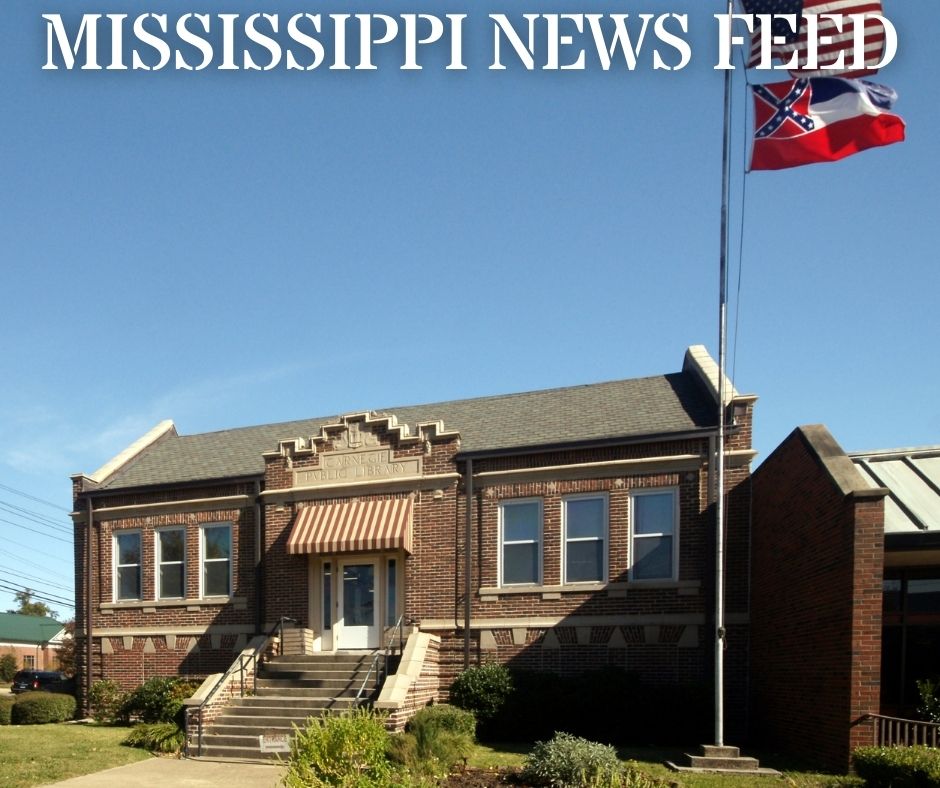Mississippi Today
Rare open negotiations occur on important Medicaid expansion issue
The curtain was pulled back last week for the first time in years on the Mississippi Legislature's often mysterious conferencing process.
A conference committee consists of three representatives and three senators appointed to try to reach agreement when the two chambers pass differing versions of the same bill. Last week, a conference committee formed to try to reach agreement on Medicaid expansion caused a stir by meeting in a public setting.
Even though the joint rules of the Mississippi Legislature call for an open conferencing process, the conferees seldom meet in public. They usually meet and negotiate their differences near the end of the session behind closed doors.
That was not always the case.
For a period in the late 1990s and early 2000s, the Legislature, under intense pressure from the Mississippi Press Association, made open conference committees the norm.
Some major issues have been played out in public conference committees. Notable open conferences include:
- The infamous, excruciatingly long special session in 2002 where businesses received more protection from lawsuits.
- Budget fights when Haley Barbour was governor when legislators often would reach an impasse in the negotiations process and spend the bulk of their time talking about their cars and eating candy.
- The major rewrite of the state's economic development package under then-Gov. Ronnie Musgrove called Advantage Mississippi.
- The Mississippi Adequate Education Program, which for decades has provided the state's share for the basic operation of local school districts. It was hammered out in an open conference process in 1997 even before the joint rules mandated the open process.
Then-state Sen. Musgrove and former House Speaker Billy McCoy deserve credit or blame, according to one's perspective, for proving the open conference process could work. When they chaired their respective chamber's education committees, they insisted on having an open conference process.
But in more recent years, open conference committees have been few and far between. The joint rule has been largely ignored.
The fact that the three House and three Senate conferees agreed to meet at least once in public on Medicaid expansion — one of the most pivotal issues facing the Legislature in recent years — drew considerable attention.
If nothing else, the open conference committee provided a raw and unedited view of how far apart the two chambers were at the time on an issue that would provide additional health care coverage to primarily the working poor.
The House wanted to provide coverage to those earning up to 138% of the federal poverty level, or about $20,000 annually for an individual, while the Senate had proposed providing coverage to those earning less than 100% of the federal poverty level, or about $15,000 per year.
According to various experts, the House plan would provide coverage to many more working Mississippians and cost less to the state than would the Senate plan. The reason for the lower cost to the state is that when expanding to 138%, the federal government will pay 90% of the costs and provide the state an additional roughly $700 million over two years as an enticement to expand.
Under the Senate plan, the federal government will pay 77% of the cost and offer no incentives. It is important to understand that in the expensive world of health care, the difference in 77% of the cost and 90% means tens of millions to Mississippi state coffers.
The House conferees repeatedly pointed out those numbers — their plan covering more at less cost — during last week's open conference committee.
One of the reasons legislators through the years have not been enamored with an open conference process is that it has often turned into efforts by the negotiators to sell their position to the public.
Once the open conference process starts, the side that feels the most comfortable with its position wants to meet more often in full view of the public to make sure the public understands where each side stands.
For whatever it is worth, the House conferees were more enthusiastic about continuing the open process after the initial Medicaid expansion conference committee.
And after that initial open conference, the Senate offered a compromise to cover those earning up to 138% of the federal poverty level — just as the House proposed.
This article first appeared on Mississippi Today and is republished here under a Creative Commons license.
Mississippi Today
On this day in 1968
MAY 11, 1968

The Poor People's Campaign arrived in Washington, D.C. A town called “Resurrection City” was erected as a tribute to the slain Martin Luther King Jr.
King had conceived the campaign, which was led by his successor at the head of the Southern Christian Leadership Conference, Ralph David Abernathy. Civil rights leader Jesse Jackson reached out to young Black men wanting vengeance for King's assassination.
“Jackson sat them down and said, ‘This is just not the way, brothers. It's just not the way,”' recalled Lenneal Henderson, then a student at the University of California at Berkeley. “He went further and said, ‘Look, you've got to pledge to me and to yourself that when you go back to wherever you live, before the year is out, you're going to do two things to make a difference in your neighborhood.' It was an impressive moment of leadership.”
This article first appeared on Mississippi Today and is republished here under a Creative Commons license.
Mississippi Today
Lawmakers may have to return to Capitol May 14 to override Gov. Tate Reeves’ potential vetoes
Legislators might not have much notice on whether they will be called back to the Mississippi Capitol for one final day of the 2024 session.
Speaker Jason White, who presides over the House, and Lt. Gov. Delbert Hosemann, who presides over the Senate, must decide in the coming days whether to reconvene the Legislature for one final day in the 2024 session on Tuesday at 1 p.m.
Lawmakers left Jackson on May 4. But under the joint resolution passed during the final days of the session, legislators gave themselves the option to return on May 14 unless Hosemann and White “jointly determine that it is not necessary to reconvene.”
The reason for the possible return on Tuesday presumably is to give the Legislature the opportunity to take up and try to override any veto by Gov. Tate Reeves. The only problem is the final bills passed by the Legislature — more than 30 — are not due action by Reeves until Monday, May 13. And technically the governor has until midnight Monday to veto or sign the bills into law or allow them to become law without his signature.
Spokespeople for both Hosemann and White say the governor has committed to taking action on that final batch of bills by Monday at 5 p.m.
“The governor's office has assured us that we will receive final word on all bills by Monday at 5 p.m.,” a spokesperson for Hosemann said. “In the meantime, we are reminding senators of the possibility of return on Tuesday.”
A spokesperson for White said, “Both the House and Senate expect to have all bills returned from the governor before 5 p.m. on Monday. The lieutenant governor and speaker will then decide if there is a reason to come back on May 14.”
The governor has five days to act on bills after he receives them while legislators are in session, which technically they still are. The final batch of bills were ready for the governor's office one day before they were picked up by Reeves staff. If they had been picked up that day earlier, Reeves would have had to act on them by Saturday.
At times, the governor has avoided picking up the bills. For instance, reporters witnessed the legislative staff attempt to deliver a batch of bills to the governor's Capitol office one day last week, but Reeves' staff refused to accept the bills. They were picked up one day later by the governor's staff, though.
Among the bills due Monday is the massive bill that funds various projects throughout the state, such as tourism projects and infrastructure projects. In total, there are more than 325 such projects totaling more than $225 million in the bill.
In the past, the governor has vetoed some of those projects.
The governor already has taken action of multiple bills passed during the final days of the session.
He allowed a bill to strip some of the power of the Public Employees Retirement System Board to become law without his signature. The bill also committed to providing a 2-and-one-half percent increase in the amount governmental entities contribute to the public employee pension plan over a five year period.
A bill expanding the area within the Capitol Complex Improvement District, located in the city of Jackson, also became law without his signature. The CCID receives additional funding from the state for infrastructure projects. A state Capitol Police Force has primary law enforcement jurisdiction in the area.
The governor signed into law earlier this week legislation replacing the long-standing Mississippi Adequate Education Program, which has been the mechanism to send state funds to local schools for their basis operation.
This article first appeared on Mississippi Today and is republished here under a Creative Commons license.
Mississippi Today
On this day in 2007


MAY 10, 2007

An Alabama grand jury indicted former state trooper James Bonard Fowler for the Feb. 18, 1965, killing of Jimmie Lee Jackson, who was trying to protect his mother from being beaten at Mack's Café.
At Jackson's funeral, Martin Luther King Jr. called him “a martyred hero of a holy crusade for freedom and human dignity.” As a society, he said, “we must be concerned not merely about who murdered him, but about the system, the way of life, the philosophy which produced the murderer.”
Authorities reopened the case after journalist John Fleming of the Anniston Star published an interview with Fowler in which he admitted, despite his claim of self-defense, that he had shot Jackson multiple times. And Fleming uncovered Fowler's killing of another Black man, Nathan Johnson. In 2010, Fowler pleaded guilty to second-degree manslaughter and was sentenced to six months behind bars.
This article first appeared on Mississippi Today and is republished here under a Creative Commons license.
-
SuperTalk FM5 days ago
Legislation outlawing ‘squatted’ vehicles in Mississippi signed into law
-
SuperTalk FM3 days ago
Mississippi governor approves bill allowing electronic search warrants
-
228Sports5 days ago
PRC’s Bats Come Alive Late As Blue Devils Beat Picayune To Advance To 6A South State Title Series
-
Mississippi Today7 days ago
On this day in 1917
-
Mississippi News6 days ago
LCSO wants people aware of a scam circling the area
-
Mississippi News6 days ago
Winston Co. Sheriff’s Office investigates shooting at Dave’s Club
-
Mississippi News4 days ago
Strong storms late Wednesday night – Home – WCBI TV
-
Mississippi News3 days ago
Louisville names street after a former high school





































